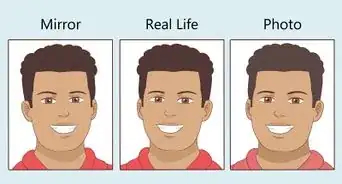X
This article was co-authored by Paul Chernyak, LPC. Paul Chernyak is a Licensed Professional Counselor in Chicago. He graduated from the American School of Professional Psychology in 2011.
There are 7 references cited in this article, which can be found at the bottom of the page.
This article has been viewed 21,299 times.
When you see someone being body shamed, you may want to step in. However, you may not know what to do in different situations. The key is to speak up when you feel the need and try to defend people who can't defend themselves, whether in public, on the internet, or with acquaintances.
Steps
Method 1
Method 1 of 3:
Dealing With Body Shaming Among People You Know
-
1Identify body shaming. Body shaming can take many different forms, so it can be hard to recognize. It can also be difficult to identify you are used to hearing body shaming talk around your friends and/or family. Body shaming is when you make negative comments about:[1]
- Yourself. For example, self-body shaming might sound like, “I look so fat in this dress!” or “My arms look so weird!”
- People in your presence. For example, you might be engaging in body shaming someone in your presence by saying something like, “You are not going to win any beauty contests at your size.” Or, “Your hips are wider than the desk!”
- People who are not in your presence. You might be engaging in body shaming of someone who is not around by saying something like, “Did you see her legs in those pants? They looked huge!” Or, “Hey, it could be worse. You could look like her!”
-
2Nip gossip in the bud. If you hear people gossiping about someone's who's not there, nip the talk in the bud. They're not there to defend themselves, and you are. Plus, the more body shaming talk you let slip by, the more likely people are to do it when you're not around.[2]
- You could say something like, "Hey, that's not cool. You shouldn't talk about John like that."
- Remind people that body shaming is a form of bullying and that can cause people to become depressed and suicidal.[3]
Advertisement -
3Speak up. When you're in a group where one person is body shaming another person, speak up. The person who's being shamed may not want to or be able to do it, but they'll likely appreciate you saying something.
- If the criticism is veiled or general, you could just make small comment to acknowledge the rudeness of the remark. For instance, if someone says at dinner, "Maybe we should skip dessert. We're all putting on a few extra pounds," you could say, "Well, I need some chocolate. Anyone want to split something with me?"
- If it's more direct, address it directly. If someone says to another person, "That dress is a bit tight on you," you could say, "That's a bit rude. I think it looks fabulous!"
-
4Leave the conversation. You may not be brave enough yet to tell someone to stop body shaming. If you're not, another option is just to walk away from the conversation. If you step away every time someone starts body shaming someone else, they'll likely get the picture at some point. Even if they don't, at least you're not participating.[4]
Advertisement
Method 2
Method 2 of 3:
Dealing With Strangers Who Are Body Shaming
-
1Speak up. Say something to the person doing the shaming. The person on the receiving end may not be able to or want to speak up. However, most people are grateful when someone else steps in. So try to say what you would want to say if you were in their shows.[5]
- For instance, if you see someone saying "You're awfully fat!" to someone else, you could say, "Why don't you keep your comments to yourself!"
- Tell people the facts about body shaming as well. For example, you might say something like, “These kind of comments and the unrealistic ideals that we place on women in our society is part of the reason why 5% of women have anorexia or bulimia.”
- Or, you might say, “Body shaming does not help people; it hurts them. Being overweight or obese is not something that people choose to do and making negative comments about someone’s weight only makes matters worse.”[6]
-
2Make friends. You can also walk up to the person being body shamed and engage them in conversation. Try sitting next to them, and just saying "hi." Then start talking to them about anything, from the weather to what your favorite book is. Basically, you're creating a safe space with the person, ignoring the person who's making inappropriate comments.[7]
-
3Offer to stay with them. If the body shamer is being aggressive, the victim may not feel safe alone, even after the other person leaves. Offer to stay with them until they can get somewhere safer, particularly if you're on public transportation. Of course, respect their wishes if they say no.[8]
-
4Call the police. If the body shamer is getting aggressive or getting in the other person's space, it may be appropriate to call the police. Even if you don't want to get involved, calling the police ensures someone will be there to help deal with the situation if it escalates.
Advertisement
Method 3
Method 3 of 3:
Defending People on the Internet
-
1Offer support. When you see someone being body shamed or even demeaned for defending themselves against body shaming, try to offer some positive support. Reply with something positive about their person or what they've said in the thread. Positive support can mean a lot on the internet.
- For instance, you could say, "I think your hair is amazing!" or "I agree, Jess, body shaming can make people feel worse about themselves, which is not healthy."
-
2Ignore the trolls. "Trolls" in internet vernacular are just people who are wanting to stir up trouble for the sake of attention. They'll often say mean things just to get a reaction. Try not to engage with this type of person, as you won't get anywhere, plus you're just giving them what they want, a response.
-
3Let the person know you don't think it's appropriate. If someone you know is body shaming someone else on the internet, let them know you don't think it's okay. Speak up by leaving a comment. You don't have to be mean, just polite and firm.
- For instance, you could write, "I know you probably didn't mean to, but calling Jean out on her weight isn't cool. It's body shaming."
Advertisement
References
- ↑ https://www.waldeneatingdisorders.com/blog/body-shaming-what-is-it-why-do-we-do-it/
- ↑ http://www.huffingtonpost.com/2013/02/02/body-shaming-5-ways-to-de_n_2568407.html?slideshow=true#gallery/277336/0
- ↑ https://www.psychologytoday.com/blog/wiring-the-mind/201501/whats-wrong-fat-shaming
- ↑ http://www.huffingtonpost.com/2013/02/02/body-shaming-5-ways-to-de_n_2568407.html?slideshow=true#gallery/277336/0
- ↑ http://www.eattoperform.com/2016/07/23/stop-body-shaming/
- ↑ https://www.psychologytoday.com/blog/wiring-the-mind/201501/whats-wrong-fat-shaming
- ↑ http://www.cnn.com/2016/09/04/europe/artists-comic-guide-against-anti-muslim-harassment/
- ↑ http://www.cnn.com/2016/09/04/europe/artists-comic-guide-against-anti-muslim-harassment/
About This Article
Advertisement
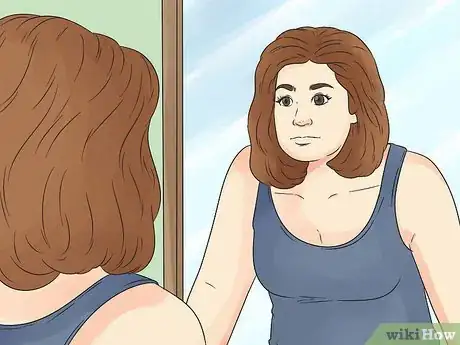
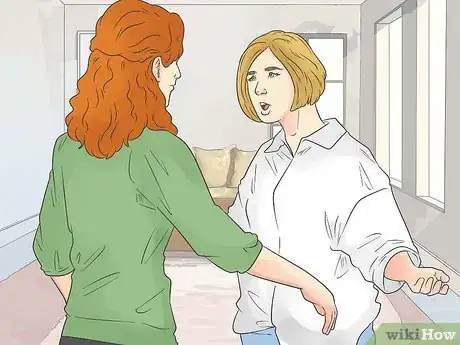
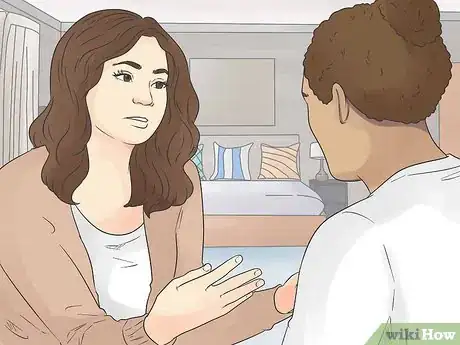

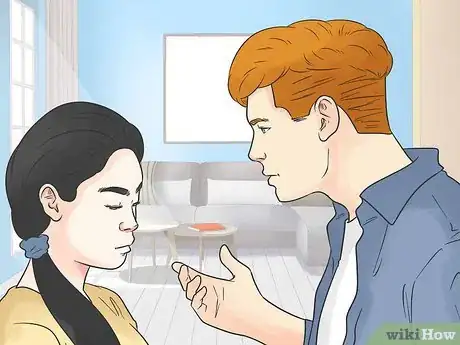


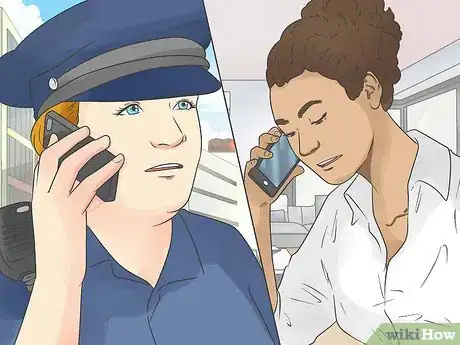







-Step-16-Version-2.webp)




